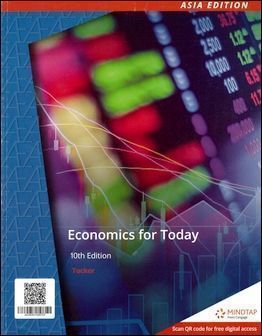書籍分類

Economics for Today 10/e
作者:Irvin B. Tucker
原價:NT$ 1,650
內容介紹 本書特色 目錄 作者介紹
- Description
Written by national award-winning educator Irvin Tucker, ECONOMICS FOR TODAY, 10E provides the most student-friendly text on the market with a clear writing style that's ideal for students at all levels. Rather than presenting a confusing array of economic analyses that students must simply memorize, this edition's straightforward, unbiased approach teaches how to apply basic economic principles and even understand economics in today's news.
The most pedagogically rich book available, ECONOMICS FOR TODAY provides a unique textual and visual learning system that clarifies and reinforces core concepts. Students can immediately assess their comprehension to ensure understanding. They examine the latest information on economic growth, income distribution, federal deficits, environmental issues, and other economic developments and learn how these key concepts apply to everyday life.
分類位置:
商管 > 經濟 > 經濟學


